Sensitivity
Exercising my senses so I can perceive the true spirit and emotions of those around me
“Rejoice with them that do rejoice, and weep with them that weep.” ROMANS 12:15
TWO PRISONERS AND THEIR PLIGHT
“And Joseph came in unto them in the morning, and looked upon them, and, behold, they were sad.”


GENESIS 40:6

BIBLICAL CHARACTER ILLUSTRATED CURRICULUM Illustrated in Scripture, Illustrated in Life
GIFT: Mercy
SPIRITUAL
CONTENTS
2 Introduction
2 How to Use This Curriculum
3 Goals and Objectives
4 Character Quality Overview
5 Sensitivity in Scripture
6 Lesson 1: Notice Others’
Facial Expressions
7 Bible Story: Two Prisoners and Their Plight
8 Memory Verse: Proverbs 15:13
9 Activity: Seeing beneath the Surface
10 Lesson 2: Listen Carefully to Others
11 Bible Story: A Captain Confronts an Emotional King
12 Memory Verse: James 1:19
13 Activity: Listen, Look, and Remember!
14 Lesson 3: Consider the Feelings of Others
15 Bible Story: Joseph and the Egyptians
Bid Farewell to Jacob
16 Memory Verse: Romans 12:15
17 Activity: Imagine If . . .
18 Lesson 4: Respond to His Promptings
19 Bible Story: A Prophet Obeys God’s Promptings
20 Memory Verse: Galatians 5:25
21 Activity: Crossword Puzzle
22 Additional Resources
22 Sensitivity GEMs





23 Journal and GEM Mine
24 Hymn Sheet Music: “Does Jesus Care?”
26 Hymn History: “Does Jesus Care?” by Frank E. Graeff

27 Explaining Salvation to a Child
28 Reproducible Coloring Pages
32 Recommended Resources


Biblical Character Illustrated Curriculum
Illustrated in Scripture
“The testimony of the Lord is sure, making wise the simple” (Psalm 19:7b). Biblical character is illustrated in this curriculum through both artwork and lessons from the lives of people in God’s Word. We most often benefit from the positive examples of faithful men and women. “For whatsoever things were written aforetime were written for our learning, that we through patience and comfort of the scriptures might have hope” (Romans 15:4). There were also people in the Bible who are representations of poor character, and we can learn from their lives as well. “Now these things were our examples, to the intent we should not lust after evil things, as they also lusted” (I Corinthians 10:6). We would be wise to learn from the testimonies God has given us in Scripture.
Illustrated in Life
“Faith cometh by hearing, and hearing by the word of God” (Romans 10:17). Hearing the Word of God causes us to grow in faith. This curriculum offers many practical applications of God’s Word to everyday life. “But be ye doers of the word, and not hearers only” (James 1:22). As God enables us to act in faith, our lives as believers will illustrate His character to others.
The
character of God is illustrated in Scripture. May it also be illustrated in our lives.
Character Quality Overview

What Is Sensitivity?
Read aloud and discuss what sensitivity means and how it applies to life.
The operational definition of sensitivity is “exercising my senses so I can perceive the true spirit and emotions of those around me.” The Bible often uses the word tenderhearted in place of the word sensitivity, meaning one is considerate of others and what they are feeling and experiencing. As you interact with others, you can demonstrate a tender heart by observing, listening, and gently asking questions. Did you know that people communicate unspoken feelings and attitudes through their body language, tone of voice, and facial expressions?
Body language, such as posture, hand gestures, and eye contact, often reflects someone’s true feelings. This unspoken communication is even more reliable than a person’s words. Our physical senses can detect verbal and nonverbal clues about someone’s spirit and emotions. If someone is excited, you can rejoice with him. If he is sad, you can sympathize with and encourage him.

The opposite of sensitivity is callousness. A physical callus is created when an area of the skin constantly rubs against another surface, such as a shovel handle or a violin string. The toughened skin (callus) reduces the area’s sense of feeling. Similarly, a person’s heart can become hardened (calloused) to the point that he does


not care about others. If a Christian allows sin to fester in his heart, his heart will become less tender to the Lord and to others. Such a person may even avoid interacting with others so that he will not be inconvenienced or hurt. Self-centeredness, fear, or bitterness give the devil an advantage and hinder the Christian from loving others and sharing the Gospel with power. Only when this guarded, insensitive person is willing to repent, forgive, and receive God’s forgiveness will his hardened heart soften toward the Lord and others.
(See Ephesians 4:30–32.)
As you seek to understand people, ask God to help you. When Jesus fulfilled His mission to bring salvation to mankind, He interacted with perception and love. He related to people based on His complete understanding of their deeper needs. (See Isaiah 61:1.) Not only did He see people’s outward expressions, He was also aware of their innermost thoughts. Even now He knows every person intimately and understands each situation fully. (See Psalm 139:1–4.) Sometimes you won’t know what your friend needs, but the Holy Spirit does know and He can guide you. He may prompt you to speak words of truth in love or lead you to pray silently for your friend. Rather than using your senses to pry or make judgments, use them to minister to others as Jesus did.
Often a callous person closes up like a clam to protect himself from being hurt and, thus, ignores the true spirit and emotions of those around him.
4
A thermometer registers the temperature of the environment similar to the way a sensitive person perceives the attitudes and emotions of those around him.
Sensitivity in Scripture
As you read and study God’s Word, you will see Who He is! Be willing to be changed by Him so Christ can be seen through your life and others will glorify God.
The Character of God
We see examples of sensitivity in God’s character in the following ways:
• Our Heavenly Father knows us intimately and understands everything about us.
(See Psalm 139:1–3.)
• God is constantly mindful of His children and is fully aware of their needs.
(See Isaiah 49:15–16.)
• God comforts those who are cast down and depressed.
(See II Corinthians 7:6, Psalm 119:50.)

• Jesus was grieved when He saw the hardness of men’s hearts.
(See Mark 3:5.)
• Jesus, understanding our need, asked the Father to send us a Comforter.
(See John 14:16.)
• Jesus’ temptations on earth enabled Him to empathize with us in our weaknesses.
(See Hebrews 4:14–15.)
• The Holy Spirit is sensitive to one’s spirit and emotions and prays for those who do not know what to pray.
(See Romans 8:26–27.)
SENSITIVITY KEY VERSE

“Rejoice with them that do rejoice, and weep with them that weep.” ROMANS 12:15
Sensitivity in My Life
Now let’s examine some ways God wants us to live out sensitivity daily.
• Who teaches me to speak a fitting word to the weary?
(See Isaiah 50:4.)
• How does God want me to treat others?
(See Matthew 7:12.)
• How does Jesus want me to respond as I become aware of spiritual needs around me?
(See Matthew 9:36–38, 28:18–20.)
• What should my attitude toward others be, whether or not they are sensitive to me?
(See Colossians 3:12–14, Luke 6:42.)
• What command am I given about being sensitive to God’s Spirit within me?
(See I Thessalonians 5:19, Ephesians 4:30.)
• How do members of Christ’s Body, the Church, affect one another?
(See I Corinthians 12:26–27.)
• In what ways can I show consideration to others today?
(See I Peter 3:8.)
5
Notice Others’ Facial Expressions




“Amerry heart maketh a cheerful countenance” (Proverbs 15:13). You can often sense how someone truly feels by observing his face. A cheerful countenance expresses inner joy, and a frown indicates dislike. As you interact with others, pay attention to the expressions on their faces. Rejoice with those who are smiling and celebrating. Notice when facial expressions reflect distress, sadness, or fear so that you can respond appropriately. If you see a scowl on your brother’s face, you could ask, “What’s wrong?” or “Do you want to talk about anything?” Or if you see your sister biting her lower lip, try to discover the source of her distress and, if needed, lead her to safety. Reassure her with a hug and a comforting word. Your sensitivity and attentiveness will reflect God’s love to others.
SENSITIVITY
Exercising my senses so I can perceive the true spirit and emotions of those around me
6
INTRODUCTION GOD ENABLES ME TO
Two Prisoners and Their Plight
BIBLE STORY
Two Prisoners and Their Plight
When Joseph was seventeen years old, his ten jealous older brothers sold him into slavery. Merchants took him to Egypt, where he was bought by a high-ranking Egyptian official named Potiphar. As captain of the guard, Potiphar was in charge of the king’s personal security force. Daily, Joseph served diligently in the household of Potiphar, who quickly realized that the young Hebrew slave was trustworthy. Potiphar promoted Joseph to be overseer of his entire household. However, one day Joseph was falsely accused and thrown into prison! Yet, even in prison, Joseph continued to serve faithfully. God showed him favor, and the keeper of the prison entrusted Joseph
1. When the offenses occurred, how did Pharaoh feel toward the baker and the butler?
(See Genesis 40:1–2.)
How can you avoid stirring up anger?
(See Proverbs 15:1, 17–18.)
2. Where was Joseph when this situation occurred?
(See Genesis 40:3.)
Where is your focus during unpleasant circumstances? How can you be mindful of others?
3. What responsibility was Joseph given in prison?
(See Genesis 40:4.)
How can you serve others who are in a difficult situation? (See Philippians 2:4–7.)
4. What did Joseph notice about the baker and the butler? (See Genesis 40:6.)
What facial expressions show sadness? What other emotions might you see expressed on someone’s face? (See Genesis 4:5–6, Proverbs 15:13, Daniel 5:6.)
5. How did Joseph show that he cared?
(See Genesis 40:7–8.)
When you are sad, do you appreciate someone
with the management of the other prisoners. One day, two servants of Pharaoh, the Egyptian king, were imprisoned. As Pharaoh’s chief baker and chief butler, the two men were responsible for preparing his food and tasting whatever he drank to make sure it was not poisoned. These two servants had offended Pharaoh and had been thrown into prison in Potiphar’s house. The captain of the guard charged Joseph with the care of these two prisoners. What would Joseph observe one day as he attended to these prisoners? What would he ask them, and what would they answer?
Let’s read the Bible story in Genesis 40:1–23 and then discuss the following questions.
who kindly listens or someone who eagerly offers advice? What happens when you don’t take time to understand? (See Proverbs 18:2, 13.)
6. How did Joseph help the two despondent men?
(See Genesis 40:12–13, 18–19.) Who enabled Joseph to help them? (See Genesis 40:8.)
Who enables you to comfort others?
(See II Corinthians 1:3–4, I Peter 4:11.)


7. What did Joseph ask the butler to do?
(See Genesis 40:14–15.)
What attitude do you need to request help and receive grace from God and others? (See I Peter 5:5–6.)
8. When the butler returned to the palace, did he remember Joseph? (See Genesis 40:23.)
Have you forgotten or ignored someone? How can you make this right? How does God want you to respond when someone is insensitive or disappoints you? (See Colossians 3:13.)
9. In God’s timing, what happened to Joseph?
(See Genesis 41:7b–14, 38–41.)
When have you seen God demonstrate sensitivity and compassion in your life?
7
LESSON 1 Notice Others’ Facial Expressions
Revealing the character of Christ through the stories in His Word.
SAVE 20% on any individual Biblical Character Illustrated booklets

Use coupon: BCICBOOKLET


Biblical Character Illustrated Curriculum
Discover this unique tool that uses the stories in Scripture to illuminate character qualities God wants to develop in the lives of His people. This curriculum contains multiple ways to teach character to kids and give them a vision for building character through faith in Christ!

Single Booklets: $10 each
Complete Set: $379 (SAVE 23%)
OTHER BIBLICAL CHARACTER RESOURCES

Single PDF Download: $3 each
PDF Download Set: $109 (SAVE 25%)
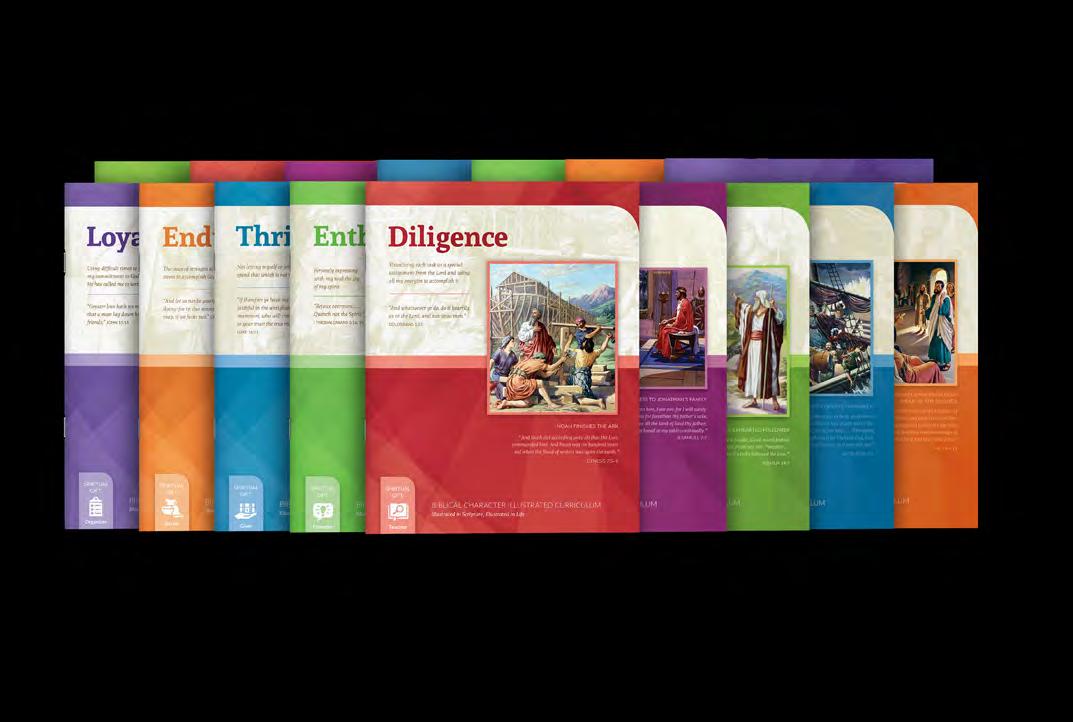
Biblical Character Illustrated 49-Booklet Set
Includes 2 bonus items: Calendar + Understanding Spiritual Gifts

Power for True Success
Insightful, Biblical studies on all 49 character qualities
Hymns for the Family, Volumes 1–4
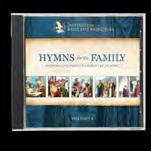
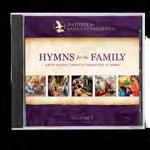
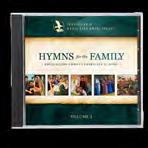
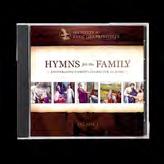
Companion hymns for each character quality
Character Sketches, 4-Volume Set
Timeless resources to show God’s character relfected in creation

Shop these resources at store.iblp.org. • Questions? Call 903-636-9600 or email biblicalcharacter@iblp.org.



























